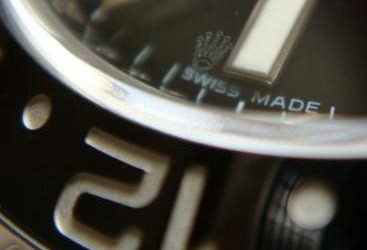“Do you use genuine parts during an overhaul?” This is usually the first question that every Rolex customer asks me. My normal answer is a bit like this: During a basic overhaul, I should not need to replace any parts as long as the watch is in decent working condition. If I do need parts, I try to source genuine parts ,then if they are not available, I have good access to generic parts from my suppliers,
Omega has made the decision that they will make just about all of their parts available to my suppliers. I have great access to genuine crystals, crowns, and just about any other part that I may need. This is the good news, the bad news is that Omega parts are very expensive. They come from Switzerland and the quality is great, but the price is high. The same goes with Rolex, the cost of just about any genuine part (if you can find them) for a Rolex is 2-3 times what you would pay for any other company’s replacement parts.
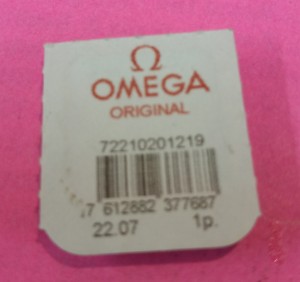
Rolex parts – Genuine vs Generic
Rolex has made the business decision that they will not sell ANY parts to any distributor in the US. They want every Rolex repair to go back to the factory for service so that they can charge the basic $700-$800 starting overhaul cost. They constantly tell the public that a “normal” watchmaker is just not equipped or trained properly to work on their watches and that anything other than a genuine part will ruin their fine watch. I say “baloney” to both of those claims!! First, any good watchmaker can repair a Rolex with enough years of experience, there is no secret to how their watches operate, they are like every other mechanical watch in the world, they are just a little better made. Second, NO mechanical part on a rolex is stamped “Rolex”, so there is absolutely no way to tell the difference between a genuine or generic part. For example, the single biggest part that breaks on a Rolex is a mainspring. I normally use a swiss generic that is made to the same exact standards as the Rolex, just at a fraction of the cost. My standard joke about a Rolex mainspring is, “if they are so well made, why do the break so often??”
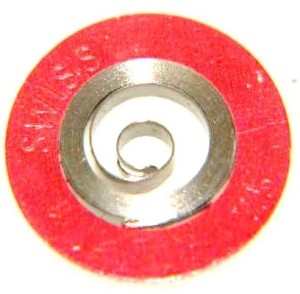
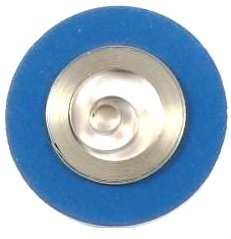
Both the genuine and generic mainsprings are of the exact size, and strength. The generic is made to the exact standards of the Rolex and will fit the mainspring barrel perfectly. No difference in performance can be seen.
The only part that is marked Rolex is on a new sapphire crystal. There is a small Rolex logo at the 6 O’Clock position Other than this crystal, NO logo or markings are on any Rolex part. So the idea that someone can open your watch and see that you have used a generic part is nonsense.
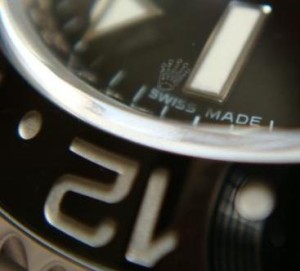
I personally like the idea of being able to offer my customer’s quality Swiss parts at a fraction of the inflated costs that genuine Rolex parts cost. I can get their watch back to good working order and save them some money along the way. The other aspect of Omega offering their parts for sale to ditributors is there are NO generic parts available for Omega watches. Since genuine parts are readily available, it has taken the incentive from any other manufacturer to produce generic parts. For example, if you want a new bezel insert for your Omega Seamaster Pro, you are going to pay $250 for that part. But if you need a generic bezel insert for your Rolex, I can get most styles for about $50.
Generic vs Genuine- Can you see the difference??
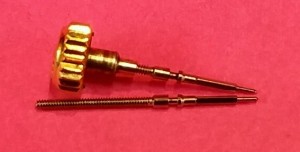
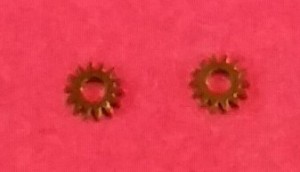
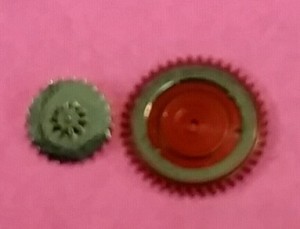
I guess that this debate is going to go on for as long as these watches are produced. generic vs genuine. Both have their advantages and disadvantages. For me, I am happy with the cost savings where available.
This will conclude my comparison between a Rolex and an Omega Seamaster. My conclusion is not surprising, The Rolex is a better watch. From top to bottom, it is well designed, easy to repair, and good looking. The Omega is also a quality product, but for me, the “Cadillac” of the watch world is a Rolex, hands down winner…..

